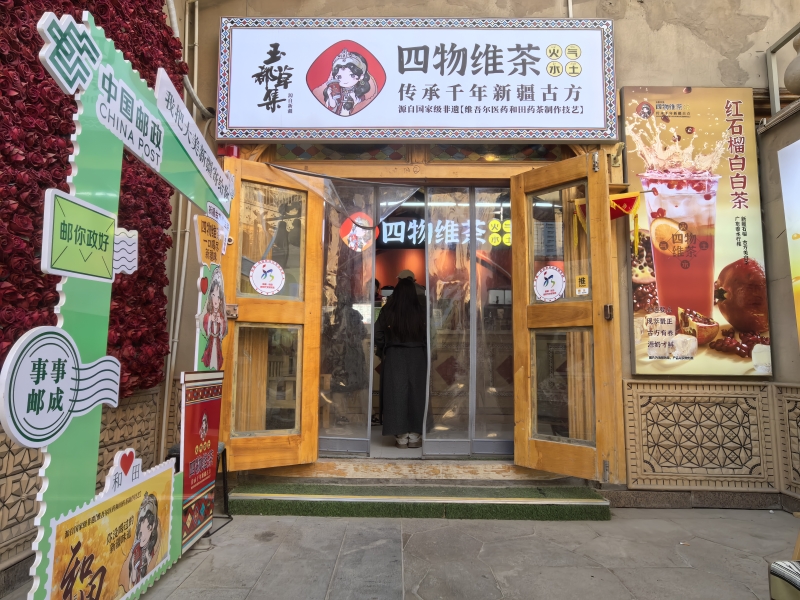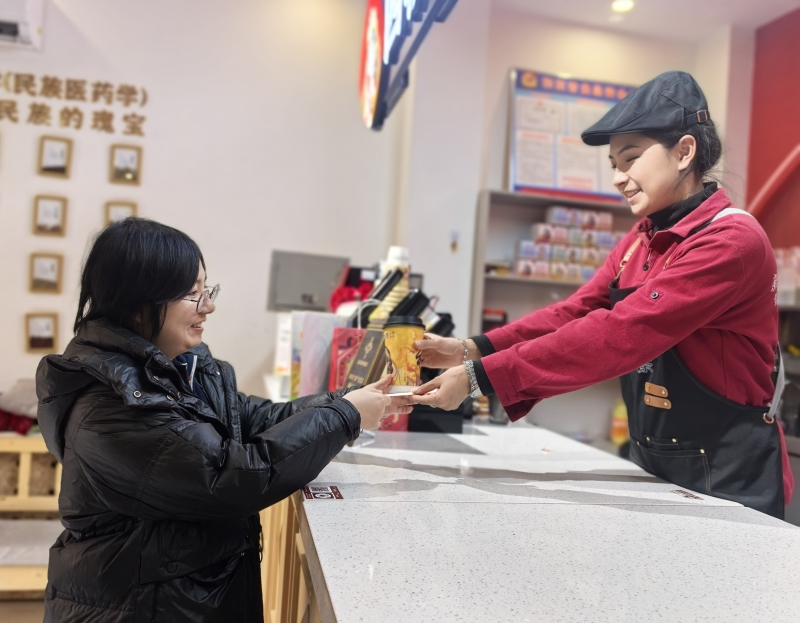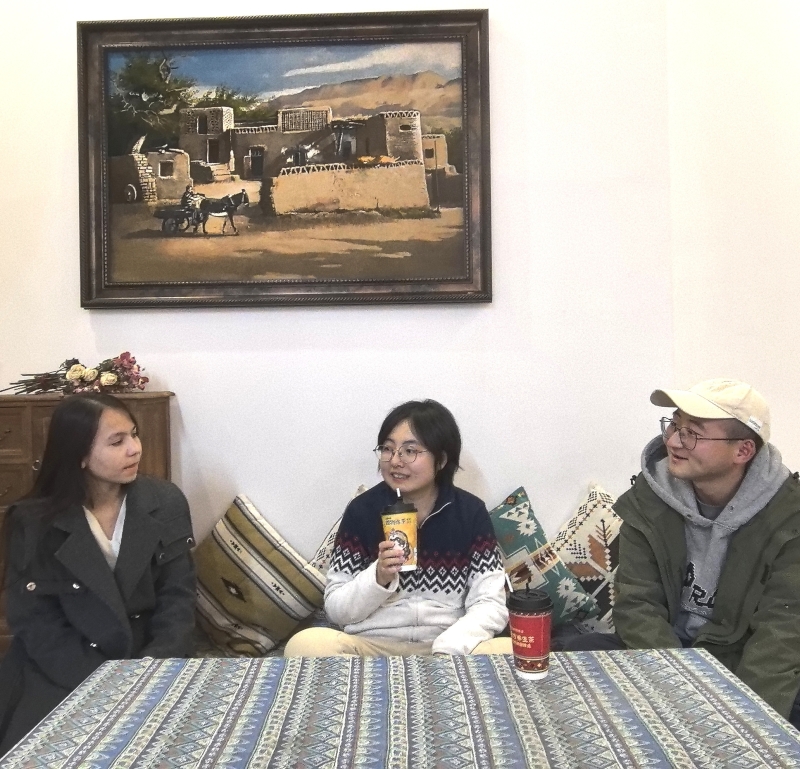On November 18, 2024, customers came in a continuous stream to buy milk tea at the Yuducaoji Siwu Uygur Tea Shop in Tuancheng scenic area, Hotan City, Hotan Prefecture, northwest China's Xinjiang Uygur Autonomous Region. The staff were making milk tea in an orderly manner. In no time, a cup of milk tea was finished. Customers sat in the leisure area, enjoying their leisure time while tasting milk tea.

Photo shows the Yuducaoji Siwu Uygur Tea Shop in Tuancheng scenic area, Hotan City, Hotan Prefecture, northwest China's Xinjiang Uygur Autonomous Region. (Photo by Zhang Shuhua)

Photo shows a customer buys a cup of milk tea at the Yuducaoji Siwu Uygur Tea Shop in Tuancheng scenic area, Hotan City, Hotan Prefecture, northwest China's Xinjiang Uygur Autonomous Region. (Photo by Zhang Shuhua)
“I heard that there has delicious milk tea, so I came over with friends to taste it at noon. The store manager recommended us a type of milk tea that is good for our stomachs. It has a unique taste that combines the aroma of Chinese herbs and milk. It is very delicious,” Arzigvl Tursunmamat, a resident of Hotan City, said.
“Since the beginning of winter, as temperatures continue to drop, our shop has successively launched a series of special milk tea. We have not only innovated in taste but also put a lot of effort into the combination of ingredients and the balance of nutrition. These hot drinks have been favored by citizens, with an average daily sales volume of 70-80 cups and a turnover of about 1500 yuan,” Mukaddas Satar, the manager of Yuducaoji Siwu Uygur Tea Shop.

Photo shows customers sit in the leisure area, enjoying their leisure time while tasting milk tea at the Yuducaoji Siwu Uygur Tea Shop in Tuancheng scenic area, Hotan City, Hotan Prefecture, northwest China's Xinjiang Uygur Autonomous Region. (Phoito by Zhang Shuhua)
Yuducaoji Siwu Uygur Tea utilizes the making skill of Hotan medicinal tea, which has been included in the list of the fifth batch of national representative intangible cultural heritage item. And based on the research and development of Uygur medicine, the Chinese medicinal herbs used in the milk tea are of the same origin as food, mostly from Hotan locals, and have the effects of nourishing the stomach, whitening the skin, and warming the uterus, etc. Yuducaoji Siwu Uygur Tea has also developed portable tea bags, which are convenient for tourists to take away. So tourists can enjoy a cup of milk tea and feel the charm of Hotan.
“Based on the advantages of the making skill of Hotan medicinal tea, we have integrated milk tea with medicinal tea to develop Siwu Uygur Tea. Its products are rich and it has formed a highlight and famous brand in the local area. Currently, it is sold in the Tuancheng scenic area of Hotan City, the ancient city of Kashi scenic area in Kashi City, and Liuxing Street scenic area in Yining City, Ili Kazak Autonomous Prefecture, and it is deeply loved by consumers,” Zhang Hong, a member of the management team of the Yuducaoji Siwu Uygur Tea Shop, said.
In recent years, with the strong support of China’s Beijing, Hotan City has relied on its unique ecological environment, harmonious cultural customs, and the advantages in ethnic medicine, and has taken Xinjiang Traditional Chinese Medicine (Ethnic Medicine) as the leading industry, continuously promoting the inheritance and innovative development of ethnic medicine, the layout of the whole industry chain of traditional Chinese medicine (ethnic medicine), modern preparations, the planting and processing of traditional Chinese herbs, and integrated industrial pattern of wellness services and medical treatment.
“Next, we plan to take Yuducaoji Siwu Uygur Tea as a pioneering project, open an online store and expand to other provinces in China. This will not only increase the economic benefits of local traditional Chinese medicinal materials, but also further expand the influence of ethnic medicine, injecting new vitality into the development of traditional Chinese medicine (ethnic medicine), Zhang Hong said.
(The Media Convergence Center of Hotan City, Reporter: Zhang Shuhua)









